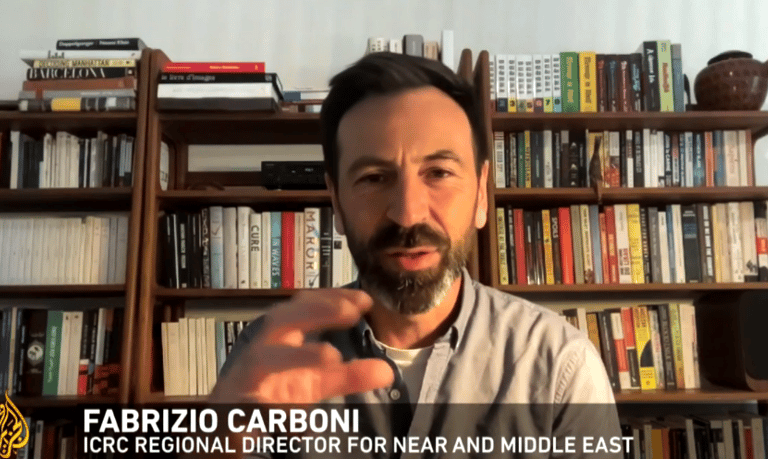Gaza Humanitarian Crisis: Urgent Calls to Prevent Normalization
ACTIVISM


Red Cross: Do not normalize what is happening in Gaza.
ICRC Regional Director Fabrizio Carboni discusses the humanitarian crisis in Gaza and the risks facing aid worker.
The humanitarian situation in Gaza is reaching catastrophic levels as the war is in its seventh month. With the territory’s population at imminent risk of famine and healthcare services in danger of complete collapse, Palestinians are struggling to cope.
Aid workers also face increasing danger, and there is concern the situation in the strip will get even worse.
The dire humanitarian crisis in Gaza, now entering its seventh month of conflict, has prompted urgent appeals from international organizations like the International Committee of the Red Cross (ICRC) to prevent normalization of the catastrophic situation. As the conflict persists, the territory's population faces alarming risks of famine and a collapse of critical healthcare services, exacerbating the already dire conditions for Palestinians struggling to survive.
Amidst this escalating crisis, aid workers operating in Gaza confront increasing dangers and challenges, raising serious concerns about their safety and the ability to deliver essential humanitarian aid. The situation is teetering on the brink of further deterioration, posing grave questions about the survival prospects for Gaza's residents and the sustainability of humanitarian efforts in the region.
To shed light on these pressing issues, Marc Lamont Hill engages in a critical dialogue with Fabrizio Carboni, the ICRC's Regional Director for the Near and Middle East. Their conversation, reported by Al Jazeera, underscores the gravity of the humanitarian situation in Gaza and the urgent need for concerted international action.
Carboni's insights provide a firsthand account of the challenges faced by aid workers on the ground and the stark realities confronting Gaza's civilian population. The ongoing conflict not only threatens lives but also undermines the basic infrastructure necessary for human survival and dignity.
The ICRC's call to prevent normalization of the crisis emphasizes the need for sustained attention and response from the international community. Without immediate and comprehensive intervention, the plight of Gaza risks becoming an accepted tragedy, rather than an urgent humanitarian emergency demanding urgent resolution.
Beyond the immediate challenges of delivering aid and ensuring the safety of humanitarian workers, the conversation with Carboni highlights broader issues of international responsibility and solidarity. The human suffering in Gaza demands a coordinated and sustained effort to address root causes, uphold international humanitarian law, and safeguard the fundamental rights of vulnerable populations.
As the conflict in Gaza continues unabated, the voices of organizations like the ICRC serve as crucial reminders of the moral imperative to act decisively in the face of human suffering. Normalizing the unacceptable conditions in Gaza is not an option—it is a call to action to preserve the dignity and humanity of those trapped in the midst of conflict and crisis.
